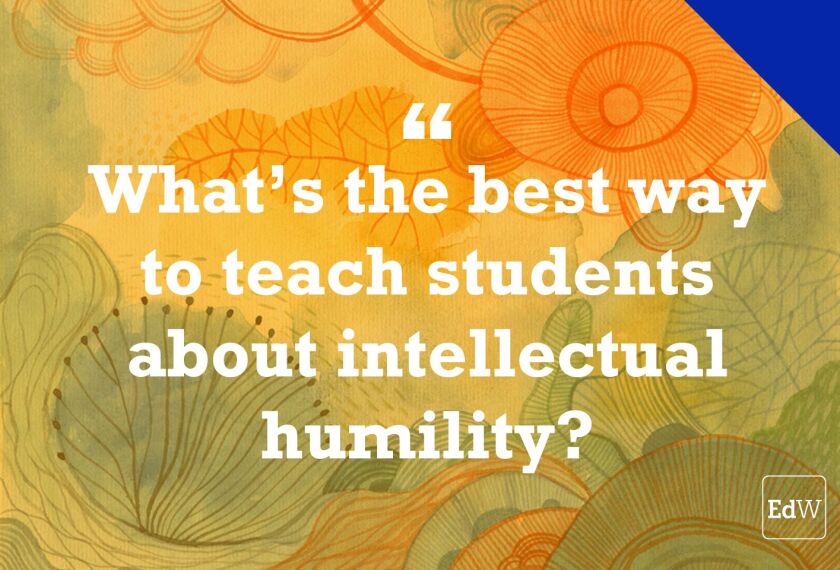What’s the best way to teach students about intellectual humility?
I answered this question along with a few others for Character Lab in a Tip of the Week:
What is intellectual humility—and how is it different from just plain humility?
Intellectual humility is about acknowledging your limitations. It means being willing to recognize that you don’t know everything there is to know about the world, that you’re not infallible, and also that other people know things that you don’t.
That’s different from general humility, which is about believing you’re not entitled to special treatment. It can pertain to your limitations as well as your strengths. And it applies to lots of different areas. So I can be humble about my athletic ability, my singing ability, and so on. Intellectual humility, on the other hand, focuses on your knowledge and ideas.
Teachers know the importance of teaching kids humility, but they might wonder why intellectual humility matters for young people. Can you explain?
Somebody who lacks intellectual humility is stuck where they are, even if they’re wrong. So if they have a belief that’s incorrect and they don’t have intellectual humility about it, they’re going to walk around with that false belief for a long time. Intellectual humility is really important for everyone—young people and adults—because it opens us up to learning. And without it, we can’t grow.
Why do people struggle to show intellectual humility?
It’s perfectly reasonable for people to be hesitant to show what they don’t know—they might be afraid people will think they’re incompetent. But those fears are overblown. Adam Fetterman’s research shows that people think it’s a bad idea to admit they’re wrong, even when it’s very clear that they are. But in study after study, other people tend to like that person more when they do admit it. They judge them as more competent than somebody who tries to hide it or deny that they’ve made a mistake.
What do you think people get wrong about intellectual humility?
Sometimes, people think that intellectually humble people lack conviction. But confidence and humility need each other. We’re learning that you need a certain amount of self-esteem to be humble—you need to have some basic belief in your capacity to give voice to your own questions or confusion. At the same time, confidence needs intellectual humility or else it becomes miscalibrated, it becomes foolish. So confidence and intellectual humility fit together.
What do we need to know about how to teach intellectual humility to teens?
Rejection hurts teens more than it hurts adults or younger children. They’re particularly sensitive to where they fit in the social hierarchy. So we have to be really intentional about creating supportive environments where teens can practice intellectual humility.
In the classroom, for example, teachers can say: “Our purpose for being here today is to learn as much as possible. As the teacher, I know a lot about this subject, but I don’t know everything there is to know about it. And if you have a different view, a different take on things, I have the potential to learn from you. So I invite you to share that.”
I also suggest praising kids when they have the courage to admit they’ve made a mistake. It’s not easy to just come out and say you’ve gotten something wrong. You can say: “I’m so impressed that you would admit this. That takes a lot of courage, and now that you’ve admitted it, we can grow from here. I’m really proud of you for doing that.” That sort of thing can be powerful.








